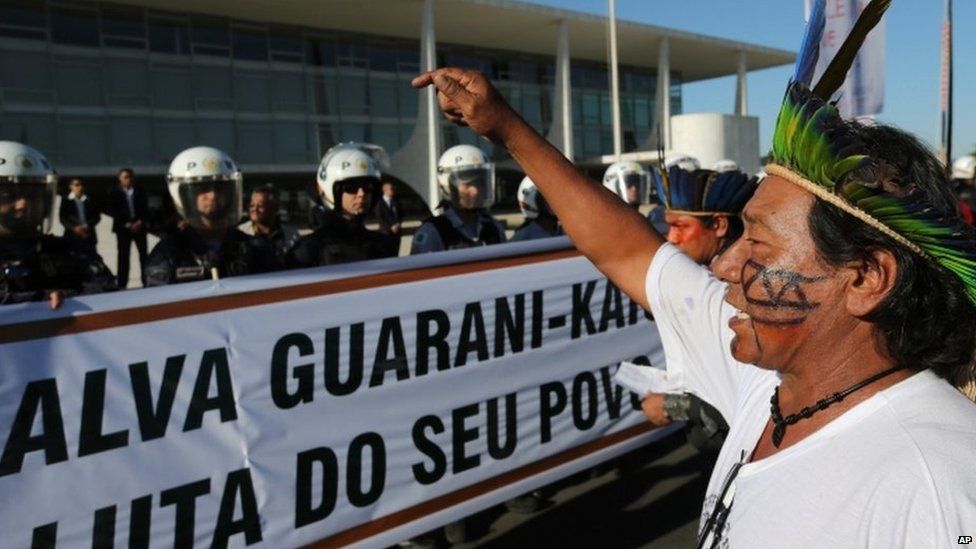Brazil indigenous leader's killing raises tension
- Published

The Brazilian justice minister has condemned the killing of an indigenous leader who was shot during a land protest in the state of Mato Grosso do Sul.
More than a week ago around 1,000 members of the Guarani-Kaiowa community occupied ranches in the area.
The leader was shot when farmers tried to retake an occupied farm on Saturday.
In 2005 the Supreme Court declared that the area where the violence is taking place belonged to the Guarani.
Justice Minister Jose Eduardo Cardozo travelled to the region with a high-level delegation, including the director-general of the Federal Police and the president of the government's Indian agency, to try to defuse the growing tension.
Federal troops have also been sent there to restore order and police the area. They will remain for a month.
The violence started when the Guarani-Kaiowa occupied five ranches on 22 August, taking hostages who were later released.
The Guarani-Kaiowa been demanding the return of their ancestral lands which, they say, were stolen by ranchers.
Brazil's constitution required the government to map out all indigenous territory and return it for their exclusive use by 1993, but the majority of Guarani lands remains in the hands of the ranchers.
Many Guarani are forced to live in overcrowded reserves or in makeshift camps on the roadside where malnutrition, disease and suicide are high.
- Published5 September 2014
- Published29 July 2014